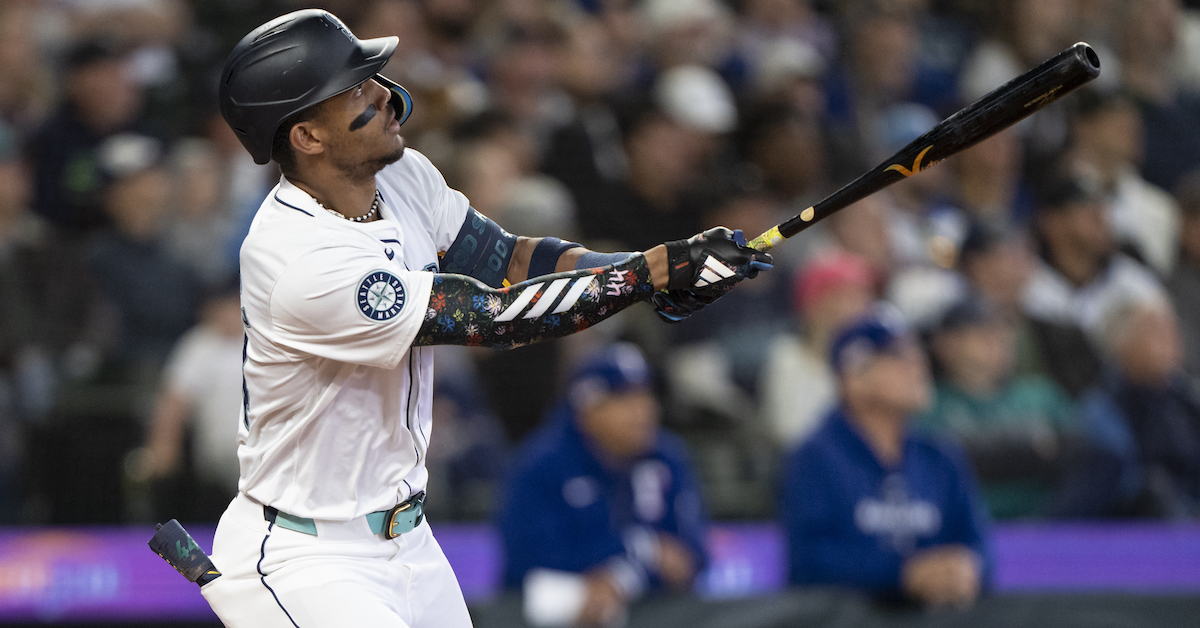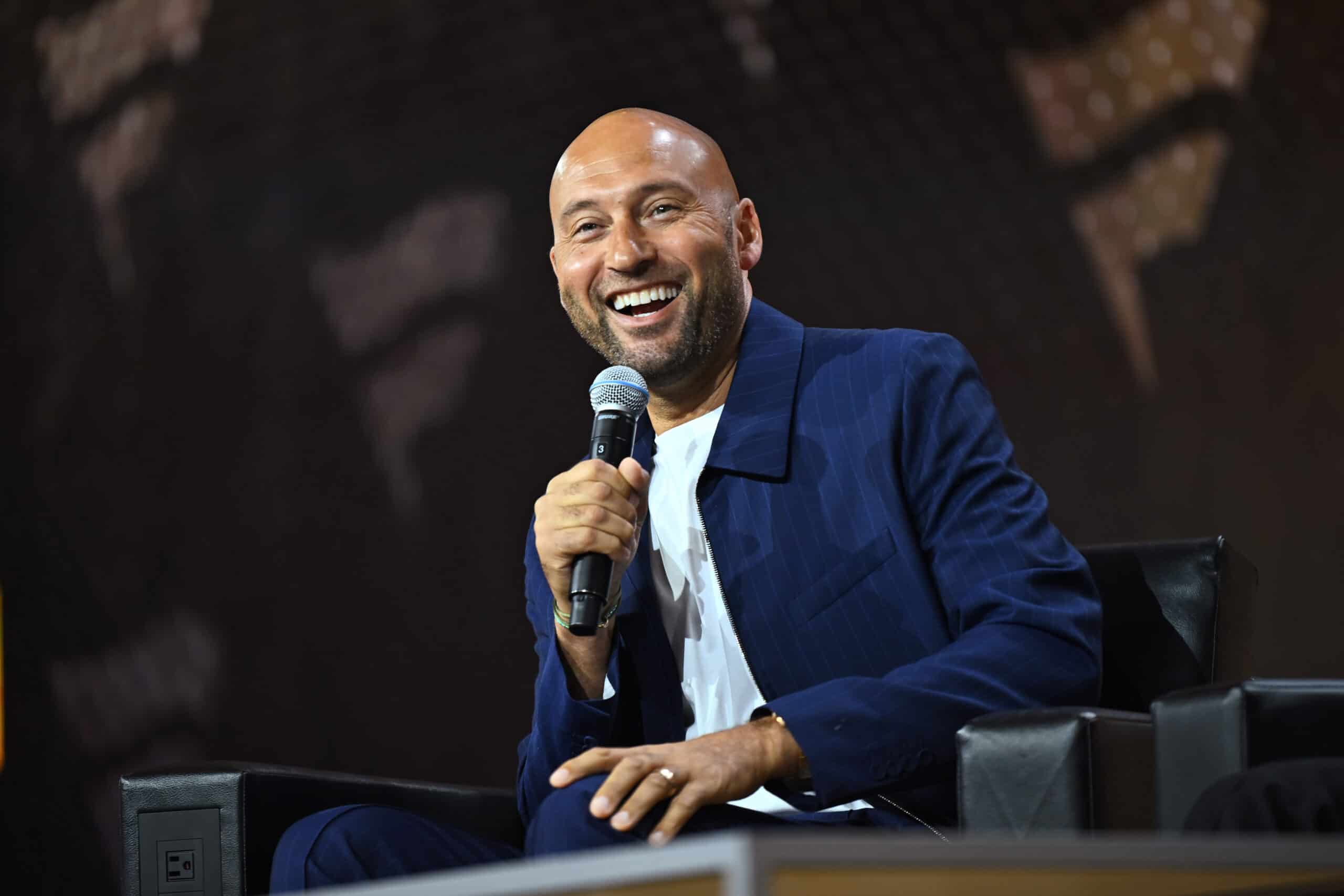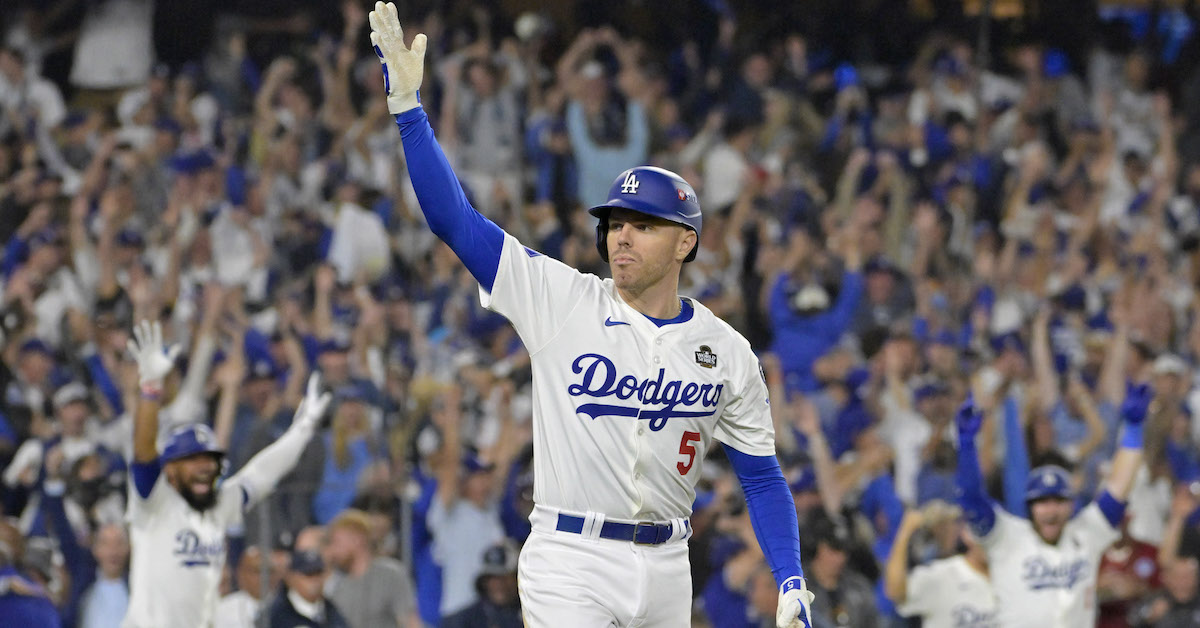[ad_1]

Julio Rodríguez is having a down year with the bat. Three months into the season, the 23-year-old Seattle Mariners center fielder is slashing just .257/.308/.343 with seven home runs and a 92 wRC+, numbers that are well below the .279/.338/.495 with a 135 wRC+ and 60 home runs he put up over his first two big league campaigns. There are a pair of silver linings, though. One is that Rodríguez was markedly better in the second half of the 2023 season (a .942 OPS) than he’d been in the first half (.721). The other is Seattle’s record. Even with the superstar performing at less than his usual standards, the Mariners are 45-36 and sitting atop the AL West standings. If Rodríguez were to repeat last season’s second-half resurgence — something you might not want to bet against — that surely would go a long way toward helping propel Seattle’s postseason push.
In the 104th installment of our Talks Hitting series, Rodríguez discussed his early development as a hitter, how he balances staying the course with a need for change, and the perspective he takes when looking at his stat sheet.
David Laurila: How did you first learn to hit?
Julio Rodríguez: “Little League. I just picked up a bat with my dad and started swinging it.”
David Laurila: Do you consider yourself a natural hitter?
Julio Rodríguez: “Kind of, yeah. I could say that. In Little League, I had my coach and all that, but my dad was a big part of it too. There was a point where he was kind of my coach before I went to this academy in Santo Domingo, in the Dominican Republic. He, as well as some other coaches, helped me out.”
David Laurila: What is your father’s baseball background?
Julio Rodríguez: “He just played amateur — he didn’t do professional — but he loved the game. That’s why I started playing.”
David Laurila: What about hitting instruction when you went to the academy?
Julio Rodríguez: “They mostly just let me do my thing. They kind of knew that I had a real feel to hit, that it came naturally to me, what I needed to do. There were some guys who obviously helped me out — how any coach will do that — but it was just little things here and there. There was nothing drastic.”
David Laurila: How about when you got to pro ball? Did the instructors want you to change anything with your setup, where you held your hands, and things like that?
Julio Rodríguez: “There wasn’t much, honestly. I mean, they tried a little bit here and there, but it didn’t feel like it was me. I didn’t feel like I was really enjoying it, so I just kind of got back to my own basics and started hitting like I am.”
David Laurila: In other words, if I looked at video of you from when you first signed and compared it now, I would basically see the same guy…
Julio Rodríguez: “No. It would be different. You could probably go from the hand positions to how I load… maybe. I feel like you’re never the same. You’re always kind of changing. Your body, how it feels, changes. You have to ride those waves as a hitter. Sometimes you feel like you’re better hitting with both of your feet on the ground. You’re a little bit more open. Sometimes you’re a little bit more closed. Again, you’re riding that wave.”
David Laurila: That said, hitters have their core fundamentals, the things that have always worked for them. Correct?
Julio Rodríguez: “Yes. I mean, sometimes when what we’re doing isn’t working it’s actually your mentality that’s not working. Sometimes you don’t really need to change, you just have to have a better approach. But sometimes you do need to change some stuff. It’s a matter of finding what it is that is costing you.”
David Laurila: When you say mentality and approach, do you mean slowing the game down and being more patient, basically waiting for your pitch?
Julio Rodríguez: “That can be a thing sometimes. But sometimes you’re just late. Or you might be chasing pitches. And sometimes you’re getting your pitches but are missing them. There are numerous things that can make you struggle.”
David Laurila: What tends to be the cause when your timing is off? Is it explainable?
Julio Rodríguez: “I mean, you’re just late. That’s all it is. Sometimes you’re gearing up late. Sometimes you’re just not there mentally. I don’t know. There are many things that can effect you.”
David Laurila: Changing direction a bit, do you pay much attention to your hitting metrics?
Julio Rodríguez: “That stuff is good, but the way I try to look at it is, ‘How did I help the team win that day?’ Sometimes the data doesn’t always reflect those things. I think a lot of people kind of step away from what really matters in the game. What I like to look at is, ‘How did I impact the game to help us win?’ Maybe we had a guy on third base and I got him in; I chased a pitch that was a little bit outside but I got the run in. For me personally, that can be more important than swinging at a good pitch.”
David Laurila: Winning aside, which of your individual stats are most important to you?
Julio Rodríguez: “Like I said, it doesn’t matter how good you are. You can be the best player, but if you don’t win you’re not doing anything. That’s how I see it. I don’t really care how much I did if we didn’t win. I care about the things I do if I help our team win that day.”
David Laurila: One more change of direction. Is hitting fun?
Julio Rodríguez: “When you can hit it’s fun. I think a lot of people would agree with that. When you’re not hitting… I mean, who likes being bad at something? Hitting is hard. So, it’s fun, but you have to embrace the struggles. As a hitter, you know you’re going to struggle. You’re also going to not struggle.”
[ad_2]



